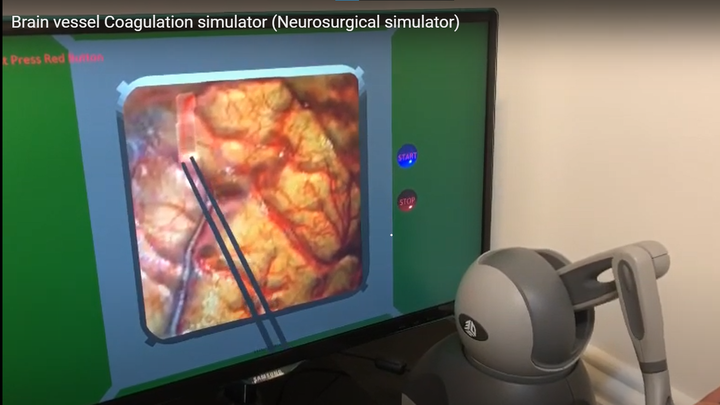Design and implementation of brain surgery bipolar electrocoagulation simulator using haptic technology

Abstract
In recent years, one of the most widely used tools in the training and evaluation of physicians and surgeons is surgical simulators. Introducing virtual reality and adding haptic technology to the field has made it feasible to develop ever-better surgical simulators. In this regard, we set out to design a brain surgery bipolar electrocoagulation simulator using haptic technology. A real image of brain tissue was taken, based on which a 3D model of this tissue was simulated. Thereafter, bipolar forceps and operation room visuals were added to the simulator. The visual and haptic features of the tissue and bipolar coagulation tool were considered. Finally, an experiment was developed to mutinously assess the simulator. The experiment was performed on 20 volunteers, and statistical analysis was conducted on the learning process and error reduction during the surgery. The volunteers were divided into gamer and non-gamer groups. The analysis of the volunteers’ operation demonstrated the positive effect of the surgery simulator on enhancing user skills for both groups.